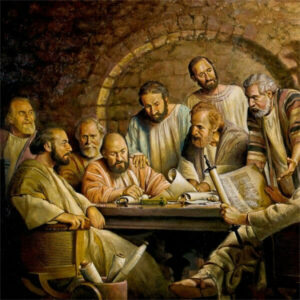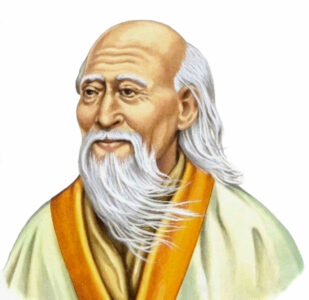Words and God’s Word

By Fr Tom Ryan SM
Part 5 of 10
“What is your opinion?”
‘What’s your opinion?’
‘What do you think we should do’?
It’s nice to be asked. And, there are times when we should be asked.
Whatever the case, when others want to hear our views, we feel acknowledged, valued. And, as experience tells us, it makes for better decisions but also for healthier relationships.
It’s not just an adult thing. Parents quickly learn that children have their own opinions. At times, a parent can be puzzled, surprised, even bewildered at an opinion a child might offer.
Everyone is different. Temperament may shape how a child (and adult) responds. The same events may trigger different reactions. And with life (and growth), opinions can change.
As we know, it is often around the family meal table that we learn the basics of listening, respect and tolerance.
More generally, in his book Legacy, Erik Overby notes how we need other opinions and points of view to help us navigate issues that arise in daily living. This is especially true of those matters that require more delicate and subtle forms of appraisal:
We need civil debate to present opposing viewpoints and point out our blind spots. We need the ability to speak freely and civilly to one another.
This leads to another aspect. These days, we hear much about effective leadership. Words such as ‘transparent’ and ‘accountable’ are common currency.
Seminars in the field cover topics such as effective planning; leadership styles; handling (and harnessing) conflict; participation and consultation; the need for, and ability to, delegate.
In many ways, then, we are talking about the wisdom of the group. We see glimpses of the beginnings of democratic processes in Athens (even if women and slaves were not included).
Again, there is the shared authority and leadership in the period of the Judges in Israel.
The Acts of the Apostles give clear witness of the Spirit working through the group at the Council of Jerusalem as a model of leadership.
The twentieth century Church finds Pope St. Paul VI speaking of the three circles of dialogue, and of how the human person is essentially a dialogical being. His successors, Pope St John Paul II and Pope Francis develop these ideas.
We grow as persons, made in the image of God, through relationships with others, especially in dialogue and the shared search for truth and goodness.
And, of course, this brings up the word often used by Pope Francis, namely, ‘synodality’.
This term is meant to capture the call (if not right) of all members of the Church to contribute to the Church’s life and decisions.
It means walking together with a common goal; a constant attitude of listening; the effort to understand the perspectives of others (and the reasons offered).
At times, this process may entail ‘evangelical’ candour, even, a level of heated interchange.
It is through such means that the Holy Spirit works in the process of discernment and its fruit, namely, coming to a judgement.
What is God’s perspective in all this?

The Council of Jerusalem
God’s Word and Shared Wisdom
Think how often Jesus asks questions of his disciples and the various people he meets. He wants to know what they think; perhaps, it might open a door to reflect further about life and themselves. ‘What are you looking for?’ ‘What do you want me to do for you?’
Consider how Jesus went about his ministry. He did not try to ‘go it alone’. He gathered disciples to help him.
He sent them out in pairs. He gave them ‘riding’ instructions beforehand. When they returned, he encouraged them to come apart, rest and, no doubt to debrief about what happened.
It was very much a collaborative exercise, a sharing of experiences and wisdom.
As we saw last month, Jesus uses parables about working together. A landowner entrusts his affairs to stewards and employees. He trusts them to use their judgement. When he returns home, he sits them down at table and waits on them. Praise and acknowledgement indeed!!
When we think about ‘what is your opinion’ and God, what emerges is how God trusts us (something we will pursue further next month).

Lao Tzu
For the moment, let’s close these thoughts about shared wisdom and collaborative leadership by looking back to the Chinese tradition:
As for the best leaders,
The people do not notice their existence.
The next best, the people honour
and praise.
The next, the people fear.
And the next the people hate …
… when the best leader’s work’s done,
the people say:
‘We did it ourselves’.
Lao Tzu 6BC
Next month: ‘If you please …’
 Entries(RSS)
Entries(RSS)